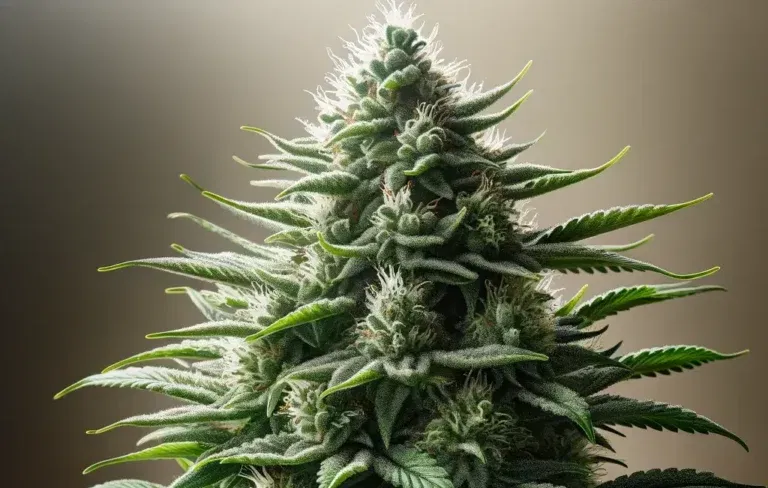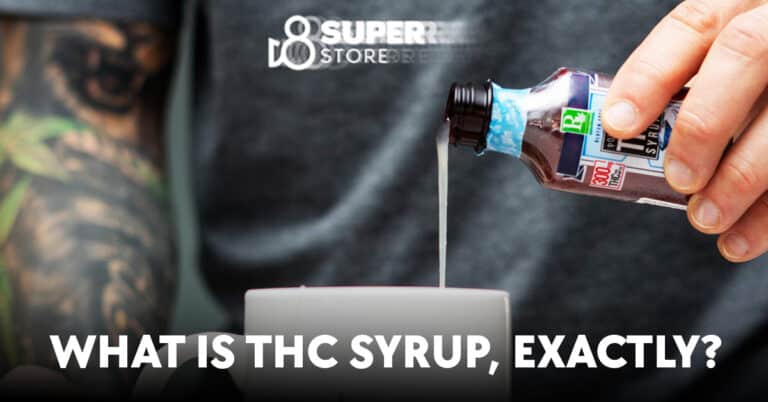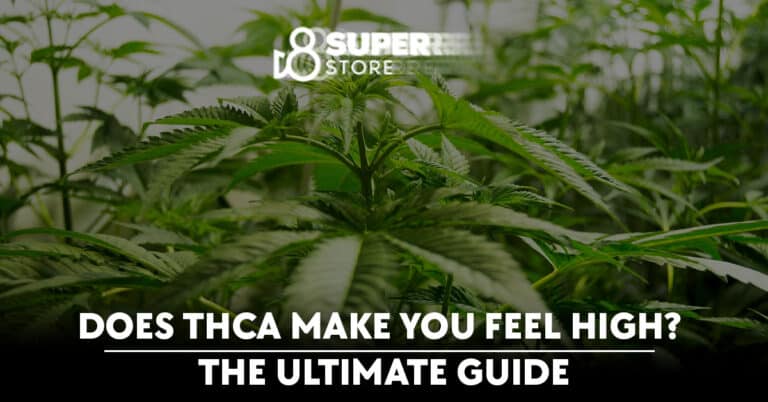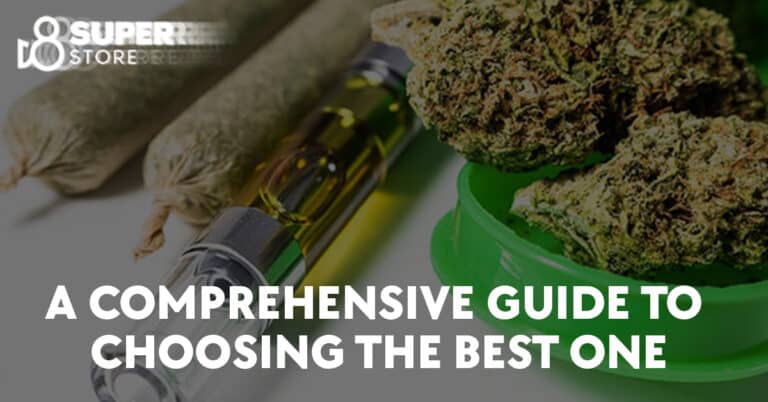THC-O vs Delta 8: Comparing Potency and Effects
THC-O and Delta-8 THC are like twinkling stars in the weed world, each with its own story, standout features, and a dash of magic they bring to the table. Knowing what sets them apart really matters when you’re hunting for your perfect weed buddy to match your lifestyle. Dive into this journey to discover your dream pot partner. Stick around, as unlocking this mystery is going to spice up your weed journey!
THC-O, or THC-O-acetate, is a synthetic cannabinoid that is made by modifying delta-9 THC, the most well-known and psychoactive compound in cannabis. On the other hand, Delta-8 THC is a naturally occurring cannabinoid, albeit in small amounts, that has gained popularity in recent years due to its milder psychoactive effects and potential health benefits compared to delta-9 THC.
In this article, we will explore the key aspects of THC-O Vs Delta 8 THC, including their chemical properties, potency, safety, and applications in pharmaceutical and recreational products.
Key Takeaways
- THC-O is a synthetic cannabinoid, while Delta-8 THC occurs naturally in cannabis plants.
- Both compounds have psychoactive properties, but Delta-8 THC is milder in its effects.
- Safety and regulatory concerns around THC-O and Delta-8 THC continue to evolve.
THC-O: Origin and Properties
THC-O, also known as THC-O-acetate, is a synthetic cannabinoid derived from natural cannabinoids found in the cannabis and hemp plants. This compound is created by acetylating the phytocannabinoid, tetrahydrocannabinol (THC), with acetic anhydride. The result is a more potent psychoactive substance, with effects that significantly differ from those of traditional marijuana.
The origin of THC-O can be traced back to the early 20th century, when researchers first began experimenting with the acetylation of various cannabinoids. However, it wasn’t until the passage of the 2018 Farm Bill that THC-O and other novel cannabinoids gained prominence in the United States.
This legislation effectively legalized hemp and its derivatives, provided that they contain no more than 0.3% THC by dry weight. This legal change led to a surge in the production and consumption of THC-O and other novel cannabinoids, such as Delta-8-THC.
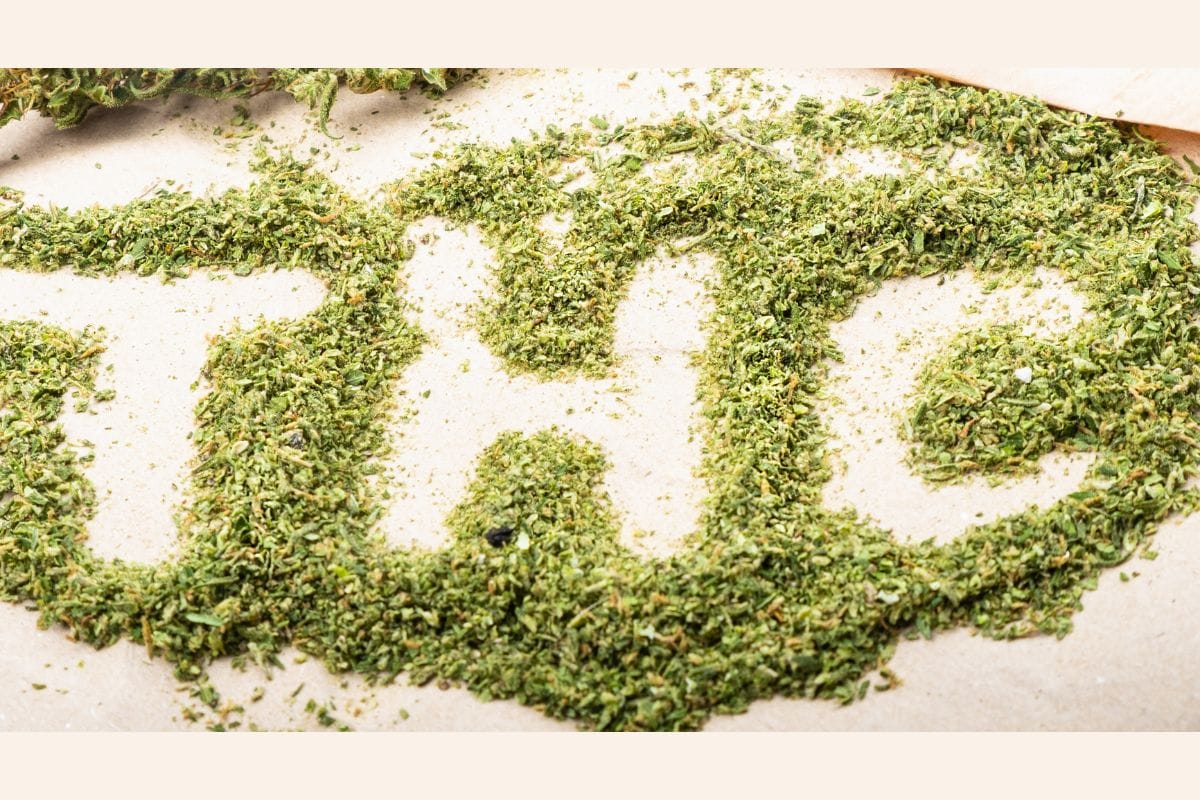
While both THC-O and Delta-8-THC originate from the cannabis plant, the two compounds have distinct properties and effects. THC-O is known for its potency, with anecdotal reports suggesting that its psychoactive effects can be up to three times stronger than those of traditional marijuana. Additionally, THC-O is said to produce a more introspective, immersive experience, as opposed to the uplifting and energizing qualities often associated with Delta-8-THC.
It’s essential to note that the majority of research on THC-O remains anecdotal, and the full range of its properties, effects, and potential risks are not yet well-understood. As with all cannabinoids, individuals may respond differently to THC-O, and it’s crucial to exercise caution and moderation when consuming any cannabis-derived product.
Delta-8: A Brief Overview
Delta-8-tetrahydrocannabinol (Delta-8) is a minor cannabinoid found in the cannabis plant. It has gained attention in recent years due to its similarity to the more well-known delta-9-tetrahydrocannabinol (Delta-9 THC), the primary psychoactive compound in marijuana. While Delta-8 and Delta-9 THC share some structural similarities, they differ in terms of potency and effects. Delta-8 is considered to be less potent, resulting in milder psychoactive effects.
The 2018 Farm Bill played a significant role in the rise of Delta-8. This legislation made hemp-derived products with less than 0.3% Delta-9 THC legal on a federal level, leading to an increase in the production and utilization of hemp-derived cannabinoids, including Delta-8. The bill opened up new opportunities for the hemp industry as it allowed the production, sale, and distribution of hemp-derived products containing Delta-8, even though it was not explicitly mentioned in the legislation.
As a cannabinoid, Delta-8 interacts with the human endocannabinoid system, which is involved in various bodily functions such as pain, appetite, mood, and memory. Some potential therapeutic uses of Delta-8 include relieving nausea and stimulating appetite, often considered beneficial for patients undergoing chemotherapy or dealing with other medical conditions. However, more research is needed to fully understand the potential benefits and risks of this compound.
Delta-8 is sometimes marketed as a recreational alternative to Delta-9 THC, due to its milder psychoactive effects. Despite this, it is essential to bear in mind that Delta-8 is still federally regulated by the Controlled Substances Act, as it is a synthesized compound derived from hemp. Some states have implemented specific regulations regarding Delta-8 and its use, so it is essential to be aware of local laws when considering using or selling Delta-8 products.
In summary, Delta-8 is a lesser-known cannabinoid that has gained attention for its potential therapeutic benefits and as an alternative to Delta-9 THC. Its rise in popularity can be attributed to the 2018 Farm Bill, which paved the way for hemp-derived products containing cannabinoids such as Delta-8. Further research is crucial to understand its full potential and potential risks.
Chemical Differences and Similarities
Delta-8 THC and THC-O are both cannabinoids found in the cannabis plant. Delta-8 is a naturally occurring minor cannabinoid, while THC-O is a synthetic cannabinoid created through a chemical process.
Delta-8 THC is an isomer of the more well-known delta-9 THC, the primary psychoactive compound found in marijuana. These two cannabinoids share a close chemical similarity, but delta-8 has a slightly different molecular structure, resulting in its milder psychoactive effects compared to delta-9 THC source.
THC-O, also known as THC-O-acetate or THC acetate, is created by combining delta-9 THC or delta-8 THC with acetic anhydride. This process converts the naturally occurring cannabinoid into a more potent and longer-lasting form. Due to its synthetic nature and significantly stronger psychoactive effects, THC-O is often considered a more potentially dangerous compound compared to delta-8 THC.

It’s important to note that, unlike delta-8 and delta-9 THC, there is limited scientific research available on THC-O. Additionally, THC-O is not a naturally occurring compound and is produced through chemical processes, which may involve the use of harsh chemicals like acetic anhydride, posing potential safety concerns for consumers.
CBD, a non-psychoactive cannabinoid present in marijuana and hemp plants, is another compound found in cannabis. Even though it shares the same source as delta-8 and delta-9 THC, its chemical structure is distinct, and it has very different properties. CBD does not produce the same psychoactive effects as THC and is often used for its potential therapeutic benefits.
In conclusion, while delta-9 THC, delta-8 THC, and THC-O are all cannabinoids, they have several chemical differences and similarities, resulting in varying effects and potential risks. Delta-8 THC has a closer chemical resemblance to delta-9 THC, while THC-O is a synthetic and more potent derivative. CBD, on the other hand, possesses its own unique chemical structure and features, highlighting the diverse range of compounds found in cannabis.
Effects and Potency Comparison
Delta 8-THC and THC-O are two different forms of tetrahydrocannabinol, both offering unique psychoactive and therapeutic effects. When comparing their effects and potencies, it is crucial to understand their differences, commonalities, and potential side effects.
Delta 8-THC is known for its lower psychoactive potency compared to its sibling, Delta 9-THC. Although it still has mind-altering effects, users often report a more functional and clear-headed experience, with decreased anxiety and paranoia. These characteristics make Delta 8 a more desirable option for those seeking relief from stress or pain while maintaining cognitive function.
THC-O, on the other hand, is a synthetically modified compound derived from hemp or cannabis. It is often referred to as THC-O acetate and is known for its higher potency compared to both Delta 8 and Delta 9-THC. Some users describe the effects of THC-O as more psychedelic and spiritual, potentially contributing to its growing popularity among those seeking an alternative to traditional THC experiences. Due to its increased potency, newcomers to THC-O should approach it with caution and consider starting with lower doses.
Regarding side effects, Delta 8-THC may cause dizziness, dry mouth, and increased heart rate in some users. These side effects are typically mild and manageable, with no severe complications reported in the available research. THC-O, although limited in scientific data, may include similar side effects as Delta 8 and other THC forms, such as dry mouth, bloodshot eyes, and increased heart rate. However, due to its higher potency, it is also essential to exercise caution and monitor individual reactions to THC-O.
In summary, both Delta 8-THC and THC-O offer unique experiences and effects within the realm of cannabis-derived compounds. Delta 8-THC is a milder, lower-potency option that allows users to enjoy therapeutic effects without the intensity of its more potent counterparts. THC-O, considered more potent and psychedelic, caters to those searching for a more profound, spiritual experience. As with any psychoactive substance, user experiences may vary, and it is crucial to monitor your individual reactions and start with low doses to ensure a safe and enjoyable experience.
Safety and Risks
Delta-8 THC and THC-O are two cannabinoids present in cannabis. While Delta-8 THC is a naturally occurring compound, THC-O is a synthetic cannabinoid derived from a chemical modification of Delta-8 THC. The safety and risks associated with these two cannabinoids may vary based on a number of factors.
For Delta-8 THC, it has been found to have a lower psychoactive effect than its more popular cousin, Delta-9 THC1. This makes it a potentially safer alternative for users who are looking for therapeutic benefits without experiencing intense psychedelic effects. However, the current body of research on Delta-8 THC is still limited, and more studies need to be conducted to fully understand its safety and potential risks.
In contrast, THC-O is a relatively newer compound, and there is even less research available on its safety, tolerance, and risks. As a synthetic cannabinoid, it might possess more potent psychoactive effects than Delta-8 THC, possibly leading to a higher risk of adverse reactions or dependence. The safety profile of THC-O is not yet well-established, which means users should approach its consumption with caution.
With both cannabinoids, it is essential to consider factors such as dosage, individual tolerance, and the legality of the compounds in one’s jurisdiction. Users should also be mindful of the quality and purity of the products they consume, as these can significantly impact the safety and potential risks associated with their use.
In summary, while Delta-8 THC shows promise as a safer and less psychoactive alternative to Delta-9 THC, more research is needed to fully understand its safety and risks. On the other hand, THC-O’s safety profile remains largely unknown due to its synthetic nature and limited research. Users should exercise caution when experimenting with these cannabinoids and stay informed about any updates on their safety and potential risks.
Health Benefits and Therapeutic Applications
Delta-8 THC and THC-O are both variations of the well-known delta-9 THC, the psychoactive compound found in cannabis. These minor cannabinoids are gaining popularity for their potential health benefits and therapeutic applications.
Delta-8 THC has been reported to help with anxiety and stress, providing a calming effect without the paranoia or intense “high” that some users experience with delta-9 THC. It has also been found to have potential in pain relief, as some users report a reduction in pain after using delta-8 THC products. Additionally, delta-8 THC may assist with sleep, as it is said to have sedative effects, making it useful for individuals suffering from insomnia or other sleep disorders.

THC-O, on the other hand, is a relatively new and less researched cannabinoid. Due to the limited data available, the health benefits and therapeutic applications of THC-O are not well-established. However, anecdotal reports suggest that THC-O may have potential benefits in addressing anxiety, pain relief, and sleep, similar to those of delta-8 THC.
Both delta-8 THC and THC-O are believed to contribute to the “entourage effect” in cannabis, which refers to the synergistic interplay among cannabinoids and other compounds in the plant. The entourage effect is thought to enhance and modulate the overall therapeutic potential of cannabis, potentially making it more effective for specific applications.
In treating nausea and promoting appetite, delta-8 THC has shown promise. A study reported that delta-8 THC was effective in reducing vomiting and improving appetite in patients undergoing cancer treatments. This suggests that delta-8 THC may hold potential as an anti-emetic and appetite stimulant for individuals with specific conditions.
Overall, delta-8 THC and THC-O hold potential for various health benefits and therapeutic applications, such as anxiety relief, pain management, sleep support, and nausea reduction. However, more research is needed to determine their long-term safety and efficacy, as well as to explore other possible therapeutic applications of these minor cannabinoids.
Product Types and Varieties
Delta 8 THC and THC-O products come in various forms, catering to consumers’ diverse preferences. Ranging from edibles to vape cartridges, these products allow users to enjoy the benefits of both compounds in different ways.
| Edibles like gummies and chocolates are popular options for those seeking a tasty and discreet method of consumption. Edibles infused with Delta 8 THC or THC-O typically provide a slow-release effect, as the cannabinoids are metabolized through the digestive system, and may take longer to feel the effects compared to other methods. |
| Oils and tinctures are versatile options, as they can be taken sublingually (under the tongue) or added to food and beverages for a customized experience. Delta 8 THC and THC-O oils can be found in various potencies, allowing users to adjust the dosage according to their needs. |
| Vape cartridges are another popular choice, with users appreciating the rapid onset of effects and portability. These cartridges contain Delta 8 THC or THC-O distillate, which can be vaporized with a compatible vape pen. Vaping offers a fast-acting method of consumption, as cannabinoids are absorbed through the lungs and enter the bloodstream quickly. |
When selecting Delta 8 THC and THC-O products, consumers should consider factors like:
- Potency: Delta 8 THC and THC-O concentrations may vary, making it essential to start with a low dose and gradually increase as needed.
- Purity: Quality products should undergo third-party lab testing to ensure consistency and absence of contaminants.
- Full-spectrum products: These contain various cannabinoids, terpenes, and flavonoids from the cannabis plant, potentially offering an entourage effect that may enhance the overall experience.
- Legality: Ensure that Delta 8 THC and THC-O products are legal in your location, as regulations may vary.
By understanding the different product types and varieties available, consumers can make informed decisions about the best Delta 8 THC or THC-O product to suit their preferences and needs.
Legality and Regulatory Status
Delta-8 THC and THC-O both belong to the family of cannabinoids found in the cannabis plant. While they share similarities, they differ in terms of their chemical properties and their legal status. It’s important to understand the differences between the two concerning federal laws and regulations.
Delta-8 THC is a psychoactive compound that has gained attention due to its misinterpreted legal loopholes in the United States. Delta-8 THC is derived from hemp, and the 2018 Farm Bill legalized hemp production, which led to the belief that delta-8 THC may also be legal. However, there are federal legislative statements that provide a clear distinction between hemp-derived Cannabidiol (CBD) and delta-8 THC. Most states currently regulate delta-8 THC, with some allowing its usage for medical and recreational purposes, while others have stricter laws in place. Further, public interest in delta-8 THC has increased in states with restrictions on delta-9 THC.
THC-O, also known as THC acetate or THC-O-acetate, is an artificially synthesized cannabinoid that is substantially more potent than delta-9 THC. Due to this, THC-O falls under the Controlled Substances Act (CSA) at the federal level, making it a Schedule I substance in the United States. Therefore, distribution, sales, and possession of THC-O can result in significant legal penalties.
At the federal level, both delta-8 THC and THC-O are subject to regulations. While the legality of delta-8 THC remains a grey area, THC-O is explicitly classified as illegal. However, regulations on these cannabinoids differ at the state level. It is crucial for consumers to stay informed about the laws and regulatory status in their respective states before purchasing or using delta-8 THC or THC-O products.
Legal considerations extend to online sales of both delta-8 THC and THC-O products. Online retailers offering these cannabinoids should ensure their products comply with state-level laws and federal regulations. In addition, consumers must be aware of the potential legal risks when purchasing these products online, as their legality may vary depending on their region.
Frequently Asked Questions
Is THC-O stronger than Delta-8?
THC-O is generally considered to be stronger than Delta-8. Users have reported stronger and more psychoactive effects from THC-O compared to Delta-8 experiences. However, it’s important to note that individual responses and tolerances can vary, so the experience of one person may not necessarily represent that of another.
What are the key differences between THC-O and Delta-9?
THC-O and Delta-9 are both psychoactive compounds found in cannabis, but they have distinct differences. THC-O is an acetate ester of THC, whereas Delta-9 is the most abundant form of THC found in the plant. Delta-9 is more potent than Delta-8, but THC-O is believed to be more potent than both Delta-8 and Delta-9 in some cases. The effects of THC-O are often described as more spiritual and introspective, while Delta-9 typically produces more classic “high” feelings.
How does THC-O compare to THC-P and HHC?
THC-O, THC-P, and HHC (hexahydrocannabinol) are all different cannabinoids with varying levels of potency and effects. There is limited scientific research available on these compounds, which makes it difficult to provide a definitive comparison. However, based on anecdotal reports, THC-P is more potent than Delta-9, and HHC has effects that are more in line with CBD, offering relaxation without the psychoactive effects of THC.
Is it safe to mix Delta-8 with THC-O?
There is a lack of research on mixing Delta-8 with THC-O, so it is crucial to exercise caution if you choose to mix these compounds. Individual tolerances and reactions can vary, so combining cannabinoids can lead to unpredictable effects. It’s essential to start with a low dose when trying any new cannabinoid, especially when combining them.
Is THC-O more potent than Delta-10?
THC-O is typically reported to be more potent than Delta-10. User experiences suggest that THC-O can produce stronger psychoactive effects compared to Delta-10. Keep in mind that individual reactions can vary, and in some cases Delta-10 and THC-O may affect users differently.
What is the legality of THC-O compared to Delta-8?
The legal status of THC-O and Delta-8 varies depending on your location. While Delta-8 is derived from hemp and can legally be sold in some states due to the 2018 Farm Bill legalizing hemp, THC-O is commonly synthesized from Delta-9 THC and may not have the same legal protections. It is essential to research your local laws and regulations before purchasing or consuming any cannabinoid product.
Footnotes
- https://www.liebertpub.com/doi/abs/10.1089/can.2021.0124 ↩
- https://heinonline.org/hol-cgi-bin/get_pdf.cgi?handle=hein.journals/wakfinp22§ion=19
- https://publications.sciences.ucf.edu/cannabis/index.php/Cannabis/article/view/164
- https://rrtampa.com/what-is-thc-o/
- https://www.liebertpub.com/doi/abs/10.1089/can.2021.0097


